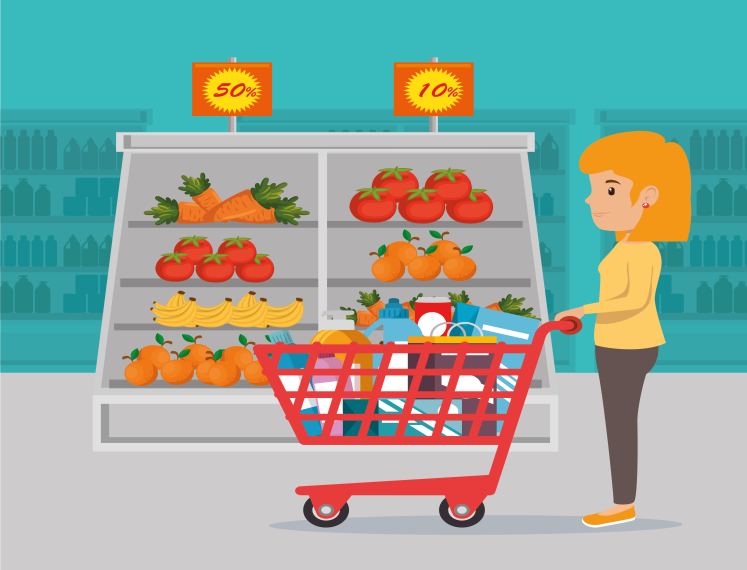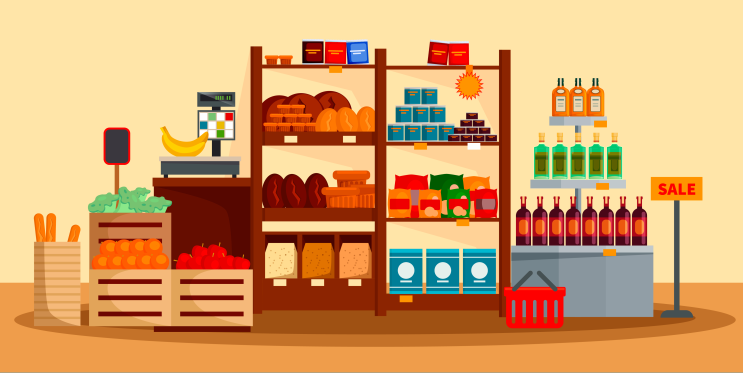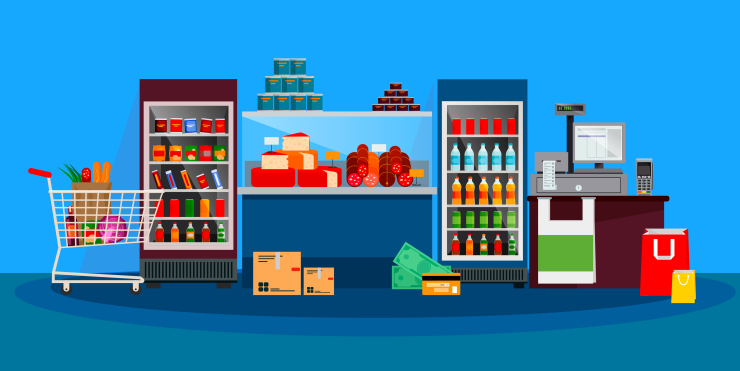Top 5 Business Trends in FMCG industry
- According to CISION PR Newswire, Global FMCG industry market was valued at $10,020 billion as of 2017 and will reach $15,361.8 billion by the end of 2025.
- According to Market Watch, the market value of FMCG industry is expected to reach $15,361.8 billion by 2025 at a Compunded Annual Growth Rate(CAGR) of 5.4% during the period 2018-25
- Key players in FMCG industry are Nestle, Unilever, Johnson & Johnson Pepsi, Coca-Cola, Carlsberg Group, Kellog, Sab Miller, Diageo
We are living in the customer based generation where not only brands, but small businesses also have focused on customers’ needs all above others. Over the past decade, customers are given highest importance and value due to the rise of personalized, client-centric experience.
Whether it’s from machines, marketing, sales media or the management, FMCG (Fast Moving Customer Goods) is one of the promptly-growing industries in the worldwide. The FMCG sector has been facing an outstanding growth mainly through the technological shift and has aslo succeeded to meet the habituating needs of consumers.

So, if you are not being concerned of your customer, your competitor will for sure. While the growing technology is transforming the way of doing business, customer preferences, faster delivery, and accurate data analysis can help you stay ahead of the competition.
1. Release of Advanced investigator to escort in Efficient Decision-Making Process:
Most businesses have understood the importance of analysis to make their business flourish. So far, marketers, Retailers and manufacturers have started depending on advanced analysis to predict the demand for the product, customer needs and emerging market.
The goal will remain the same in the coming days. Turning data into information, and information into necessary insights can help in predictive analysis. Data and predictive analysis will become a more important element for FMCG because it helps to find out what to sell, when to sell and where to sell the products.
Some of the factors that can contribute to the systematic analysis are automated tools to track sales and distribution ,offline and online commerce activities, Tracking real-time ordering and delivering ,Measuring the systematic number of goods sold and demand forecasting mainly with the help of business intelligence tools ,Promotion and marketing campaign to stay connected with customers, Keeping track of all the distribution channels and Region-wise sales activities to identify real-time scenario of products.
Overall to generate significant ROI along with a number of growth opportunities, Insights-driven marketing will surely become the major trait using predictive analytics. Finally, to create advanced, highly-personalized, and long lasting strategies for FMCG is one of the major trends to watch out for in in the coming days to come.
2. Customer Convenience to grab The Attention:
Customer service should not be a department rather it should be the entire organization.
There is no doubt that groundbreaking product ideas and marketing campaigns are going to succeed, but you can’t ignore the customer-centric changes that opened the way for exceptional customer experiences. Customers have an options of variations for the same product and hence, customer loyalty became more important over the period of time.
Mainly for brands, rewarding their customers or employees for their loyalty requires more strategic efforts by emphasizing more on customer convenience.
Moreover, Retailers are leveraging ‘digital’ to provide comfortable secure and extraordinary customer experience.
3. Effective Promotion and Closer Customer Engagements:
Regardless of the products and services they offer to the world, every brand seems to have a proper plan of branding. Majority of the customers are brand-obsessed at present. 2020 will see more of branding, as well as long-term engagements, and innovations in marketing. Trying to involve themselves in branding, Marketer or entrepreneur, are really working hard and that is what they must do.

As per the recent report by McKinsey known as “The State of Fashion 2019” states that in the British fashion industry about 10,000 EU citizens are employed where 63% of UK fashion designers and 55% of UK-based luxury good makers are mainly engaged in exports. players now need to be nimble, think digitally first and achieve growth rapidly regardless of size and segment .
Therefore according to McKinsey & Company, they need to take an active stand on social issues, and moreover satisfy consumer needs and demands for transparency and sustainability.”
Industries like FMCG understands the importance of quicker response, faster-delivery of perishable goods, and solutions to convince customer’s fluctuated minds and beliefs.
4. Health and Environment-Oriented products:
We have witnessed the movement of plastic ban all over the world. We have noticed that customers have taken a stand against the products which are harmful to the individual’s health and our environments. Due to the hype of social media and effective marketing channels, customers have become knowledgeable and they have raised their voices that is not in their favor which is truly a huge change.
Mainly, the health-conscious and environment-conscious goods will be focused more over other types of products. Towards the awareness of clean, less-polluted, and healthy environment, paperless and plastic ban movements have given a clear hint.
5. Faster Fin Tech Solutions and Omni channel e-commerce:
We are observing that the gap is thinning between domestic and non-domestic commerce especially due to globalization in e Commerce. In contradiction to this, many reports have said that people are choosing local brands over global ones as they wanted the authenticity of brands, mainly in the food and beverage industry. However, the overall FMCG business needs to stay in harmony with manufacturing, advanced supply chain, wider distribution network, and most necessarily with customers’ needs.
Omni channel ecommerce is all about serving your customer by prioritizing their convenience. So basically omni channel brand presence, and personalization will surely level up the strategy of FMCG growth mainly powerful influencers, stronger social media presence, and use of modern digital solutions to offer 24*7 assistance.

Therefore, being associated with FMCG industry, main attention should be towards the above mentioned in order to strengthen the strategies. Which tools are you focusing on? How you are dealing with the changes in the industry these are the questions that needs to be taken into consideration.






